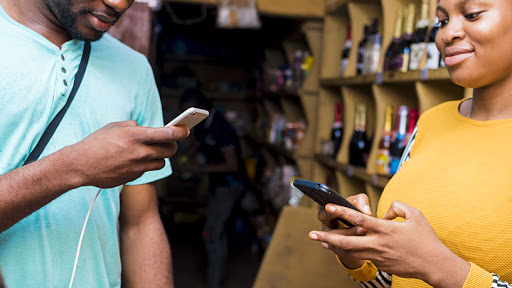he COVID-19 pandemic has spurred growth of Africa’s mobile money platforms, with some countries on the continent heading to become cashless societies. T
So say industry players and market watchers, as new fintech solutions disrupt the traditional banking
models across the continent.
According to a recent GSMA report , during 2019, mobile money services reached a milestone, surpassing one billion accounts globally.
It says Sub-Saharan Africa is the enduring epicentre of mobile money, adding over 50 million registered accounts in 2019.
Cash may have traditionally been king, but COVID-19 has contributed to a faster pace of digital payment adoption.
James Bayhack, Sub-Saharan Africa director at CM.com , points out it is estimated that Africa’s population will have exceeded the two billion mark within the next three decades, while population curves across the rest of the globe are expected to either flatten or begin to decline over the same period.
“This growth rate, coupled with the fact that virtually all unbanked adults live in developing economies, contributes to the perfect melting pot for a mobile money market on our continent,” says Bayhack.
He explains that M-Pesa, which was the first mobile money payment service in Africa, was recently acquired by South Africa’s Vodacom and its Kenyan subsidiary, Safaricom.
But beyond M-Pesa – which has 26 million registered users in Kenya, of which approximately 73% are active – there are several other service providers that have been highly successful in this category in Africa, Bayhack says.
These include MTN Mobile Money, with 41 million registered customers (approximately 38% of which are active) across 15 countries; Orange Money, with 16 million registered customers across 14 countries; and Tigo Money, with eight million registered customers across five African countries, he notes.“There is little doubt that mobile money just makes sense – especially in Africa.“This was proven in Kenya during the COVID-19 pandemic when mobile money usage soared, thanks mostly to the Kenyan government who waived sending charges of up to 1 000 shillings (about $9.3) in a bid to encourage cashless payments and curb the spread of the disease.“As no one knows what the future holds, it is comforting to recognise that mobile money services can only improve lives in the most vulnerable homes, while giving users more control over their finances.”He says that mobile money solutions enable users to cut out traditional financial institutions by conducting financial transactions on mobile devices without the need for a bankaccount.“In this way, mobile money is […]
